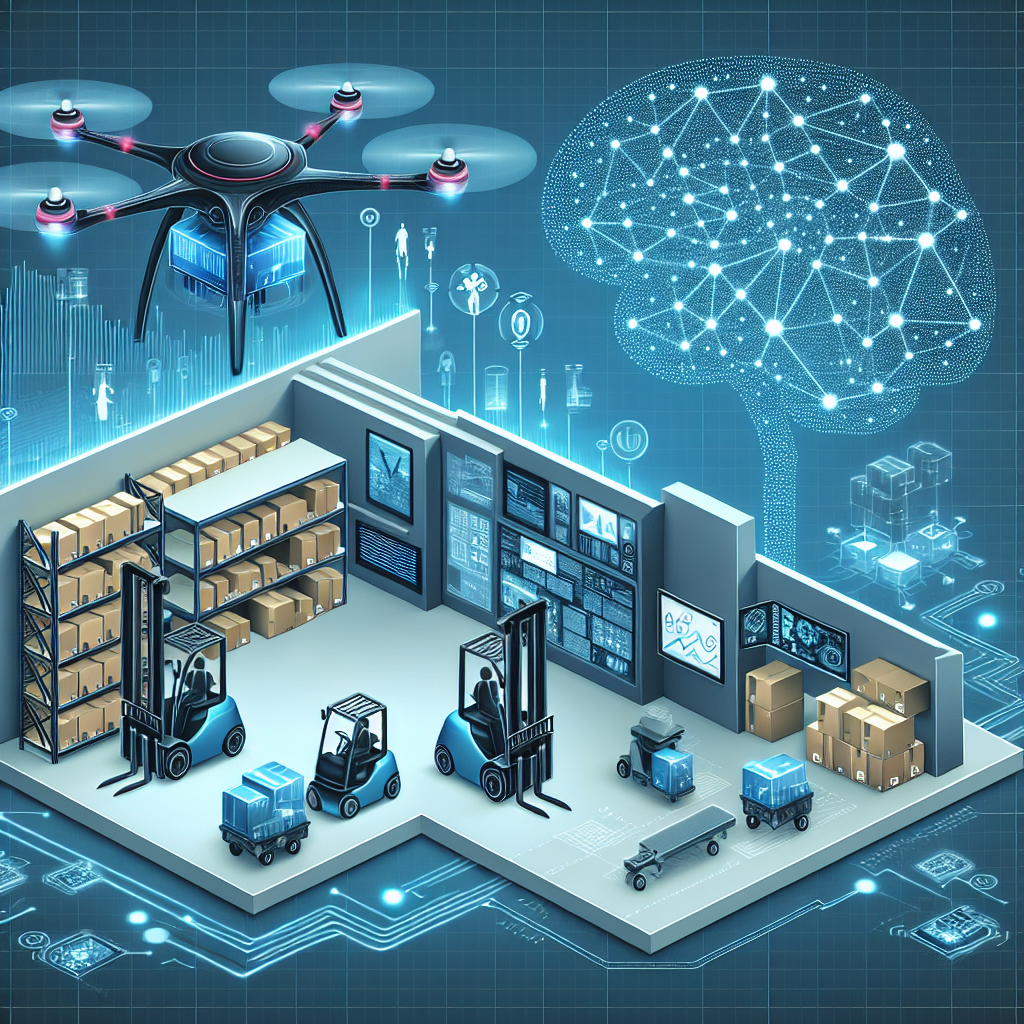In recent years, artificial intelligence (AI) has been revolutionizing various industries, and the supply chain is no exception. AI is transforming the way companies manage their supply chains, from forecasting demand to optimizing inventory and streamlining logistics. By leveraging AI technology, companies can improve efficiency, reduce costs, and enhance customer satisfaction. In this article, we will explore how AI is revolutionizing the supply chain and its potential impact on the future of logistics.
1. Demand forecasting
One of the key areas where AI is making a significant impact in the supply chain is demand forecasting. Traditionally, companies relied on historical data and manual analysis to predict demand for their products. However, AI-powered forecasting models can analyze large volumes of data in real-time to predict demand more accurately. By incorporating factors such as seasonality, market trends, and external events, AI can help companies better understand consumer behavior and make more informed decisions about inventory levels and production schedules.
2. Inventory management
AI is also transforming inventory management by enabling companies to optimize their inventory levels and reduce stockouts and overstock situations. By using machine learning algorithms, companies can analyze historical sales data, supplier performance, and lead times to predict optimal inventory levels. AI can also help companies identify slow-moving products, detect potential stockouts, and recommend reorder quantities. By leveraging AI technology, companies can improve inventory turnover, reduce holding costs, and enhance overall supply chain efficiency.
3. Warehouse automation
AI is revolutionizing warehouse operations by enabling companies to automate repetitive tasks and streamline order fulfillment processes. AI-powered robots and drones can pick, pack, and ship orders faster and more accurately than human workers. By using computer vision and machine learning algorithms, companies can optimize warehouse layout, improve inventory visibility, and reduce picking errors. AI can also help companies optimize route planning, minimize transportation costs, and enhance last-mile delivery operations. By automating warehouse operations, companies can improve order accuracy, reduce labor costs, and enhance customer satisfaction.
4. Supply chain visibility
AI is enhancing supply chain visibility by enabling companies to track and monitor their shipments in real-time. By using IoT sensors, RFID tags, and GPS technology, companies can collect data on the location, condition, and status of their products throughout the supply chain. AI-powered analytics platforms can analyze this data to provide real-time insights into supply chain performance, identify potential bottlenecks, and predict delivery delays. By improving supply chain visibility, companies can reduce lead times, mitigate risks, and enhance collaboration with suppliers and partners.
5. Predictive maintenance
AI is transforming maintenance operations by enabling companies to predict equipment failures before they occur. By using sensor data and machine learning algorithms, companies can monitor the health and performance of their machinery in real-time. AI can analyze equipment data to detect anomalies, identify patterns, and predict when maintenance is required. By implementing predictive maintenance strategies, companies can reduce downtime, extend the lifespan of their assets, and optimize maintenance schedules. AI-powered predictive maintenance can also help companies improve safety, reduce maintenance costs, and enhance overall operational efficiency.
6. Customer service
AI is revolutionizing customer service in the supply chain by enabling companies to provide personalized and proactive support to their customers. By using natural language processing and chatbot technology, companies can automate customer interactions, resolve inquiries, and provide real-time updates on order status. AI-powered chatbots can also analyze customer feedback, sentiment, and preferences to deliver personalized recommendations and offers. By leveraging AI technology, companies can enhance customer satisfaction, build brand loyalty, and differentiate themselves from competitors.
7. Sustainability
AI is driving sustainability in the supply chain by enabling companies to reduce waste, energy consumption, and carbon emissions. By using AI-powered optimization algorithms, companies can minimize transportation routes, reduce fuel consumption, and lower carbon footprint. AI can also help companies optimize packaging materials, improve recycling processes, and reduce environmental impact. By implementing sustainable practices in the supply chain, companies can enhance brand reputation, attract environmentally conscious customers, and contribute to a more sustainable future.
FAQs:
1. What are the benefits of using AI in the supply chain?
– Improved demand forecasting
– Optimized inventory management
– Streamlined warehouse operations
– Enhanced supply chain visibility
– Predictive maintenance
– Personalized customer service
– Sustainability
2. How can companies implement AI in their supply chain operations?
Companies can implement AI in their supply chain operations by:
– Investing in AI-powered software and tools
– Integrating AI technology with existing systems and processes
– Training employees on how to use AI technology effectively
– Collaborating with AI vendors and partners to develop customized solutions
– Monitoring and evaluating the impact of AI on supply chain performance
3. What are the challenges of implementing AI in the supply chain?
– High upfront costs of AI technology
– Integration with existing systems and processes
– Data privacy and security concerns
– Lack of skilled AI talent
– Resistance to change from employees
– Uncertainty about ROI and long-term benefits
4. What is the future of AI in the supply chain?
The future of AI in the supply chain is promising, with the potential to transform the industry in the following ways:
– Autonomous supply chain operations
– Real-time predictive analytics
– Blockchain-enabled supply chain transparency
– AI-powered supply chain networks
– Collaborative robots and drones
– Sustainable and ethical supply chain practices
In conclusion, AI is revolutionizing the supply chain by enabling companies to improve demand forecasting, optimize inventory management, streamline warehouse operations, enhance supply chain visibility, implement predictive maintenance, provide personalized customer service, and drive sustainability. By leveraging AI technology, companies can enhance operational efficiency, reduce costs, and deliver better customer experiences. As AI continues to evolve, the future of the supply chain looks promising, with the potential to transform the industry in unprecedented ways.

